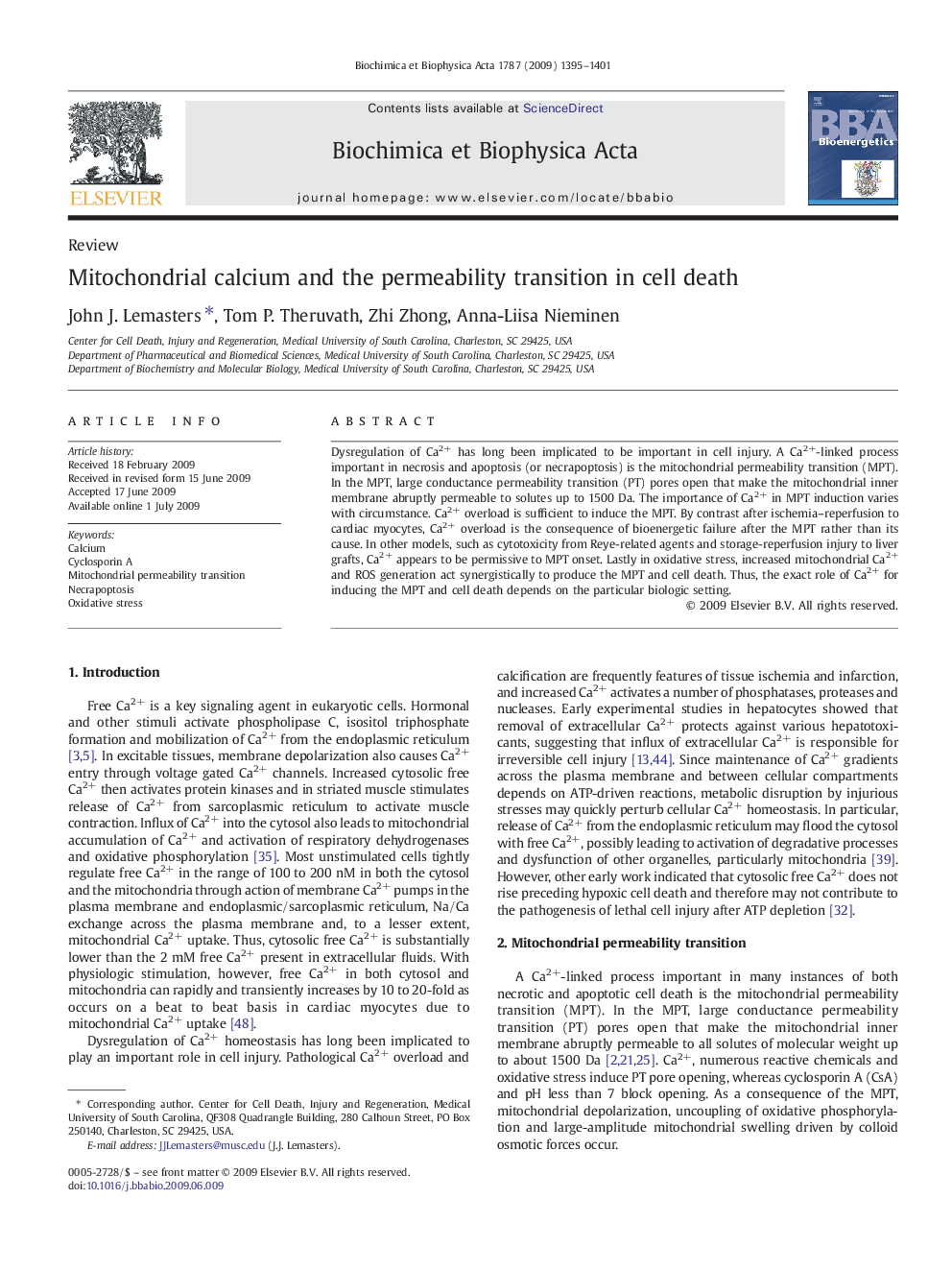| کد مقاله | کد نشریه | سال انتشار | مقاله انگلیسی | نسخه تمام متن |
|---|---|---|---|---|
| 1943043 | 1052642 | 2009 | 7 صفحه PDF | دانلود رایگان |

Dysregulation of Ca2+ has long been implicated to be important in cell injury. A Ca2+-linked process important in necrosis and apoptosis (or necrapoptosis) is the mitochondrial permeability transition (MPT). In the MPT, large conductance permeability transition (PT) pores open that make the mitochondrial inner membrane abruptly permeable to solutes up to 1500 Da. The importance of Ca2+ in MPT induction varies with circumstance. Ca2+ overload is sufficient to induce the MPT. By contrast after ischemia–reperfusion to cardiac myocytes, Ca2+ overload is the consequence of bioenergetic failure after the MPT rather than its cause. In other models, such as cytotoxicity from Reye-related agents and storage-reperfusion injury to liver grafts, Ca2+ appears to be permissive to MPT onset. Lastly in oxidative stress, increased mitochondrial Ca2+ and ROS generation act synergistically to produce the MPT and cell death. Thus, the exact role of Ca2+ for inducing the MPT and cell death depends on the particular biologic setting.
Journal: Biochimica et Biophysica Acta (BBA) - Bioenergetics - Volume 1787, Issue 11, November 2009, Pages 1395–1401